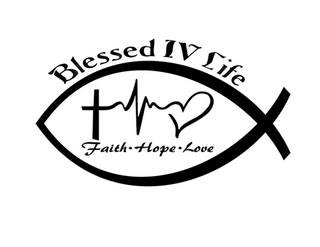Blessed to Be a Blessings
We believe that Christians should serve in ways that advance the gospel, wisely steward our resources, and engage the hearts of those around us in strategic and life-changing ways. Below are three keys to identifying the the best ways to help in the midst of tragedy.
1. Trusted Relationships
The most effective kind of help is delivered in the context of relationship. This doesn't mean you have to know someone who was affected by a disaster. Look for trusted organizations that already have relationships within the affected region. This might be a church or non-profit in the area, a BIVL partner, or even a trusted organization that deploys assistance around the globe.
What about GoFundMe, Facebook Fundraisers, PayPal, etc.?
Be especially careful about donating to "crowdsourced" funding opportunities. While you may feel like you're helping, oftentimes it means giving without either knowing the recipient or how the money will be used. For disasters in the US, USVI or Puerto Rico keep in mind that homeowners insurance generally provides emergency assistance and immediate relief for the families that have been affected.
2. Know the Timeline of Help
The phases of disaster response are Rescue, Relief, Recovery, and Development.
It's important to match our type of help with the stage. In the middle of a crisis, offering "Recovery" or "Development" tends to create difficulties for those it intends to help.
In the Rescue and early Relief stages, most of us can be most helpful by supporting organizations that are prepared to serve with excellence. Someone with very particular skills (healthcare professionals, for example) might volunteer with an organization like this. But for most people, our funds are more effective than our hands and feet during this stage.
Eventually the Relief stage moves into the Recovery stage. By this time, media attention has moved on. Yet, there may be a myriad of opportunities to respond to the disaster, including pastoral care, demolition and construction, moving and storing belongings, or short-term provision of food, water, and temporary shelter. At this point, hands-on volunteering may be really useful, as long as a trusted organization or church is coordinating the efforts.
In the Development stage, we can help people and cities move forward. People's livelihoods, quality of life, access to education and health care, and other developmental aspects of a community become priorities. At this point, a deeper commitment to the long-term conditions of a region is the focus. Volunteering often means investing time, talents, and resources long-term in the community.
3. Assisting Trusted Organizations
For most of us, the skills and material goods we might want to bring “in the moment” are better used in the months after the initial relief effort. As mentioned above, monetary donations to a trusted organization are often what is needed most. Organizations can use these funds to meet the most critical needs, whether that is water, warmth, financial help, shelter, or rescue.
Southern Baptist Disaster Relief and Samaritan’s Purse have a long history of effective efforts in Jesus' name and often the first to respond to natural disasters. We recommend these organizations to those who want to donate their time and resources in the wake of a natural disaster.
Disaster Relief Fund
BIVL has a designated fund for disaster relief and aid. Any resources given to this fund will be directed to those in need or set aside for trusted, like-minded partners and churches in areas affected by natural disasters and to deploy teams for relief efforts.
We are working on becoming a 501c ministry. As of today, we are dealing with a small amount of contributions that will have to filed at end of year. An account has been established for BIVL alone to serve the community. Even though the account is clearly under the ministry name it has yet been registered by the IRS and the local common wealth and will have to be accounted for by the individuals overseeing the BIVL work.
Once registered we will post a link for financial contributions. Until then we suggest the following to assist our heart felt work here:
www.metrovineyardsanjuan.com "Our Home Church"
www.ppm.org Praying Pelican Missions
www.cru.org Campus Crusade for Christ
If you would like to send a small contribution direct to the ministry you can do so by sending a personal check under the name of the ministry,
“Blessed IV Life” ,P. O. Box 369, Trujillo Alto, PR 00977
Any large contributions should be sent to www.ripeforharvest.org/donate/ to the account #20417. Here your donations will be counted as tax deducdable under the Blessed IV Life ministry.
We are in the need for tools and material. Please look into Gift Cards of well known companys such as Home Depot or Walmart which could be sent off to the ministries of your choice.
Please keep us in prayer as we seek to further the Kingdom of God here.
Share this page

